Solemnity of Our Lord Jesus Christ, King of the Universe – Cycle C
Reflecting on Luke 23: 35-43
Jesus, remember us when you come into your kingdom. Remember us, Jesus, in the Philippines. You thirsted on the cross that terrible day. We thirst. We have no clean water, and no one can reach us in our isolated village. We suffer with you, Jesus.
They looted your belongings and cast lots for your garment that terrible day. Here, every source of water and food and shelter has been looted. We are not criminals. We are trying to save our children. We are naked, and wet, and cold, and hot. We suffer with you, Jesus.
Remember those, Jesus, here at home, who await court trials. Their family members are terrified for them. Console all prisoners around the world who are wrongly imprisoned through the false testimony of others. You suffered that betrayal too. And as you forgave the Good Thief from the cross, let all prisoners who have sinned against you deeply know the deep consolation of your saving mercy.
Your friends fled from you that terrible day. What a comfort it would have been to have them there at the cross, praying with you. Instead, your tormentors mocked you. Our elderly understand that, Jesus. They are alone in their nursing homes, forgotten by friends, abandoned by their children. Their memories fail them, and they are the source of snickering behind their backs. They suffer with you, Jesus.
Remember the young people around the world, Jesus, who cannot find work. Many cannot find meaning. Many cannot find you. O Jesus, remember them most of all.
In what areas of your life do you ask Jesus to “remember” you?

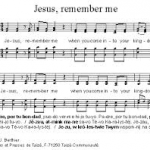


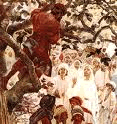
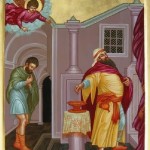

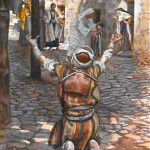
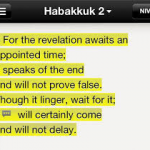
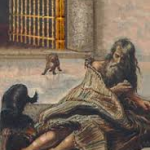

I need to forgive my best friend, my spouse. I have been deeply hurt by him. I know in my head I need to forgive him, but I am having a trouble time in my heart. Jesus, forgives me daily. This is what we say in the Our Father prayer, “forgive us our trespasses as we forgive those who trespass against us”, I am really struggling. I pray about it alot. Jesus, remember me the one who is struggling to forgive. I need to live those words of forgiveness. Jesus I need your help!
Thank you, Kathy for remembering our people in the Philippines. Guia and I just got back after three weeks and the devastation brings many communities back to the stone age.
It’s the strongest typhoon ever recorded in history throughout the world. Even churches that stood for four hundred years got destroyed.God bless you and everyone in this cyber commuhnity.